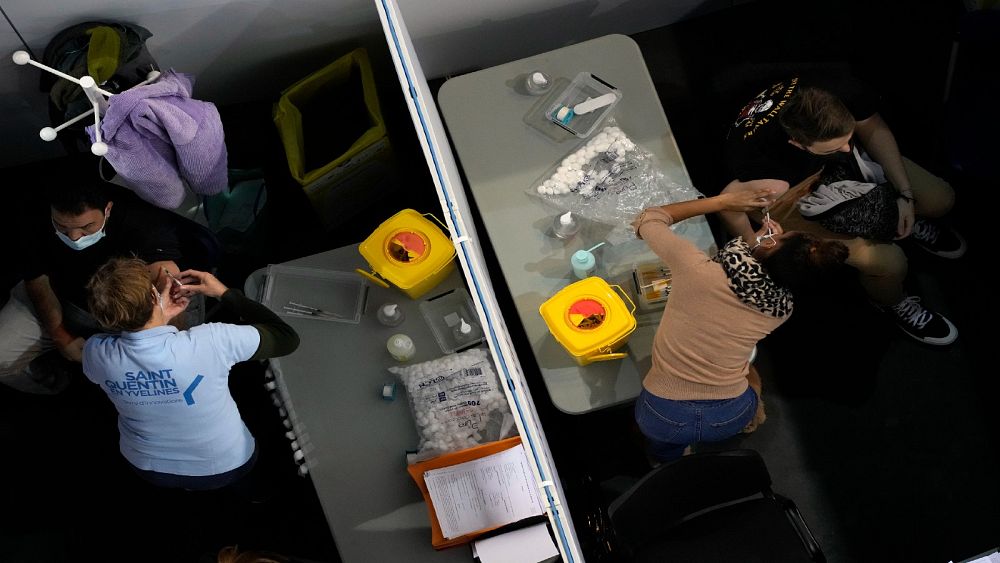
The French government is considering extending the use of the COVID-19 pass to the workplace which unions decry as a covert attempt to impose mandatory vaccination.
Labour Minister Elizebeth Borne met with union representatives on Monday to discuss a potential extension of the COVID pass to the workplace.
Caroline Carlac’h, spokesperson for the MEDEF, the employers’ union, denounced the proposal following the meeting as “a way for the government to impose a disguised obligation (to vaccinate) through companies.”
Meanwhile, the union’s president, Patrick Martin, outlined his opposition to BFMTV, arguing that “it has now been proven that the workplace is not a place of contamination”.
He also deplored that the proposed legislation plans for harsh sanctions against employers, including a €45,000 fine and a one-year jail sentence, if they are found to have not properly controlled health passes. He stressed that it might not be logistically feasible for some employers to check employees’ health passes every day.
“The state is transferring to companies a responsibility it does not want to assume itself, which is (mandatory) vaccination,” he said.
Government spokesman Gabriel Attal said on Tuesday that another round of consultations is to take place later in the day with local elected representatives and parliamentary groups before the decision will be made.
He nevertheless stressed the interest of such a measure, saying that “the objective is to encourage vaccination as much as possible because we can see that it is our best tool in the face of the progression of the epidemic.”
About 90% of people over the age of 18 are fully vaccinated in France, according to health ministry data.
Both Italy and Germany already require mandatory vaccinations for workers. Romania MPs were on Tuesday debating extending the use of the COVID pass to the workplace as well, although its use would be limited to periods of epidemiological flare-ups.
France rolled out its health pass in late July with people required to show proof they have either been vaccinated, tested negative for COVID-19 over the previous 48 hours or recently recovered from the disease to visit hospitality businesses, cultural and leisure venues and on long-distance public transport. It is required of anyone over the age of 12.
Compulsory vaccination was meanwhile ordered for healthcare workers.
The government, which credited the health pass for low COVID-19 hospitalisation numbers in the autumn, has for now eschewed taking lockdown measures to tackle an infection surge in the run-up to Christmas.
However nightclubs have been ordered shut, dancing prohibited in bars and restaurants and New Year’s Eve events, even outdoors such as fireworks displays, cancelled.
But Attal also warned on Tuesday that the government could “go beyond” these measures “if we see that there is a strong resumption of the epidemic linked to the Omicron variant.”
According to the government spokesman, France is entering “a period of turbulence with Omicron”, noting that this variant of the coronavirus is resulting in “a flood of contaminations” in the UK.
“The question mark is the proportion of serious cases that require hospitalisation,” he said.
Critical care units across France counted more than 3,000 COVID-19 patients for the first time since May, according to figures published Monday by Santé Publique France.
Nearly 16,00 people were hospitalised in France because of COVID-19 on Monday — 400 more than the previous day.
The number of new cases was 15,075 in 24 hours, but this figure is traditionally low on Monday. Over the past seven days, the average has risen to 52,885 daily cases.
